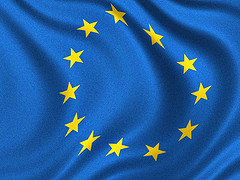Suffering, Squalor, and Stolen Dreams: Inside Lesbos’ Refugee Camps
The charming Greek island of Lesbos, once famous for its rich heritage, ouzo, and olive oil, is a notorious hotspot for refugees. The symbolic Statue of Liberty, standing tall since 1922, serves as a reminder of the island’s history following the Asia Minor war when thousands of Greeks fled to Lesbos. Located in the Aegean Sea near Turkey, the island became a focal point during the refugee crisis in 2015 when approximately 379,000 refugees arrived. Refugees continue to arrive every day, and around 17,029 people of the island’s population of over 86,000 people are refugees, the majority of whom are children (43 percent) many unaccompanied (18 percent) – from war torn countries. With the influx of refugees, the island …

Deepening Democracy in Europe: Participatory budgeting is a solution to the austerity vs democracy conundrum
In its mission statement the Global Commission on Elections, Democracy and Security points out that while elections are vital to democracy, on their own they are not sufficient. According to, “Deepening Democracy”, a recent report, elections also need integrity. They are right. But elections are insufficient in at least another respect too. Democracy is not limited to casting a ballot once every four or five years; the nature of democratic government also manifests itself in the period between elections. This is best exemplified by the current sovereign debt crisis in the Eurozone.

What Future for a Greece in Crisis?
An early spring Sunday afternoon in Athens finds tourists and Greeks alike chattering away in cafes and on terraces soaking up the sunshine. But a walk around the centre soon reveals boarded up shops and buildings – many from closures, some from arson attacks at demonstrations this February and earlier. By the famous ‘neo-classical trilogy’ of buildings comprising the National library, Academy of Greece and University of Athens, you can see drug-users injecting on the pathways. It is all part of the visible face of the deep social, political and economic crisis that is battering Greece. Economists and other pundits continue to argue over whether the second bail-out deal agreed at the end of February will be the last and …
The risks of the current approach to Greece and the Euro-crisis
Last week, I debated how much more the Greek nation can take given the enormous internal and external pressures on families, society and the nation. When discussing this with my friend and colleague Pavlos Efthymiou, we realised that some important points were missing and have rewritten the article together (also published on ELIAMEP). Mainstream International Relations (IR) thinking (see Realism, Liberalism) holds that the national interest drives states to act the way they do on the international stage. This post-hoc rationalising to explain policy outcomes works successfully enough to be employed by the majority of policy-makers, academics, and analysts to inform their audiences. However, what they are often missing is how such an interest comes about and what it is …









